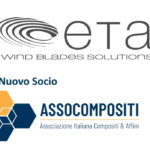Lino, canapa, ginestra: le piante bonificatrici dei terreni inquinati da metalli pesanti possono diventare materie prime per produrre nuovi materiali biocompositi da costruzione. Amici dell’ambiente e dotati di buone proprietà meccaniche, potrebbero trovare applicazione in ambiti molto diversi. Dal design di interni alla produzione di strutture secondarie di auto e aerei. «L’obiettivo del progetto era quello di rendere i materiali compositi più sostenibili da un punto di vista ambientale» spiega Savoja. «Per questo abbiamo pensato di usare tessuti di fibre vegetali facilmente reperibili in Calabria, come lino, canapa e ginestra. Li abbiamo immersi in una matrice bioepossidica derivata dalla resina di pino; abbiamo poi unito il tutto sfruttando sistemi di produzione già presenti sul nostro territorio, perché in uso nel settore della nautica». Le lamine bidimensionali così ottenute sono state sottoposte a diversi test di laboratorio. In cui hanno dimostrato una buona elasticità e una discreta resistenza alla trazione. Alla luce di queste proprietà meccaniche, spiega la ricercatrice, i nuovi materiali biocompositi «potrebbero essere usati per l’interior design, o per produrre pannelli e altre piccole strutture per l’ingegneria civile, o ancora le strutture secondarie di auto e aerei».













